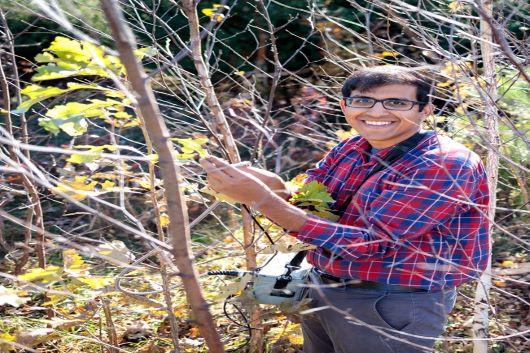Biology Seminar | Dr. Shan Kothari, University of Montreal | Blinded by the light: photoinhibition in an ecological context

Among the environmental factors to which plants are subjected, light is among the most mercurial, fluctuating by orders of magnitude each day. Plant ecologists tend to think of light mainly as an essential resource for which plants compete. However, light can also be a stressor: plants may suffer a form of oxidative damage known as photoinhibition when their leaves absorb more light than they can use or otherwise dissipate. I discuss some of the unusual theoretical consequences of light's dual role and illustrate them using three vignettes. First, I elaborate on the spectrum of adaptations that co-occurring plants have to avoid or tolerate excess light, and I explore their consequences in experimental plant communities. Second, I show how plants' varying tolerances to high light influence their interactions with each other, tilting the balance between competition and facilitation. Third, I call attention to autumn as a time when winter-deciduous trees are particularly vulnerable to photoinhibition, which may influence their ability to retain nutrients. These vignettes reveal the avoidance of photoinhibition as a key component of plants' broader functional strategies.






